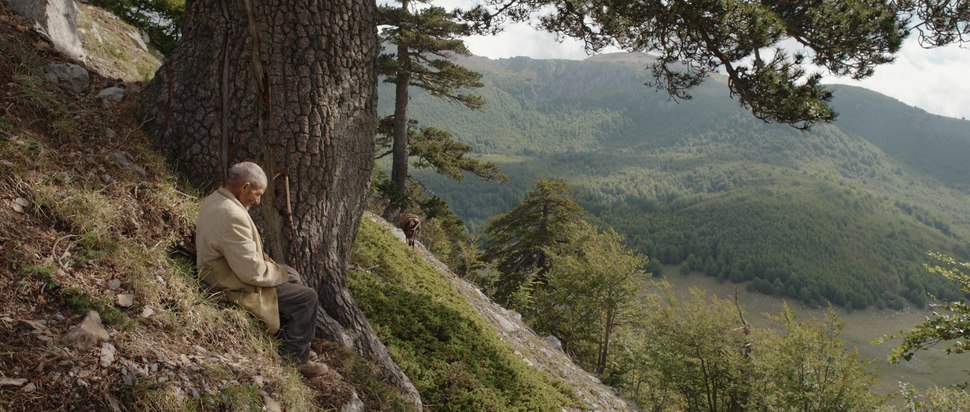Il Buco
Michelangelo Frammartino literally and figuratively plumbs the depths with new feature Il Buco, which is peppered with the same kind of gentle humour and moments of incidental magic we saw in his 2010 masterpiece Le Quattro Volte
Michelangelo Frammartino’s long-awaited follow-up to 2010’s Le Quattro Volte recreates a 1961 speleological expedition in Italy’s southernmost region of Calabria.
This ambitious attempt to chart the Bifurto Abyss (at the time thought to be the third deepest cave system in the world) is observed by an ageing shepherd who lives near the spelunking site. The epic sweep and grandeur of the Pollino massif is juxtaposed with the eerie darkness of the cave, in which the only light source comes from the speleologists’ headlamps or the magazine pages they ignite and throw into the chasm to judge its depth. Frammartino and his director of photography Renato Berta worked with a team of professional cave divers to recreate this expedition as truthfully as possible. The result is an immersive, often claustrophobic experience, like plunging the audience into the depths of the abyss and leaving them to blindly search for a spark of revelatory light.
Above ground, we observe the shepherd as he calmly watches his livestock graze at the foot of the mountain. At times, it’s impossible to separate him from the surrounding landscape; the deep furrows and cracked skin of his weather-beaten face are almost indistinguishable from the nearby rockface. These parallels between the shepherd and the Pollino massif reach another level when he suddenly falls ill. Through a series of intelligent edits, it becomes clear that the speleologist’s expedition might somehow be connected to the shepherd's illness. As they near the apex of the Bifurto Abyss, his health deteriorates and it becomes difficult to differentiate between the sound of his laboured breathing and the wind echoing through the cave.
Just like Frammartino’s previous film, which was inspired by Pythagoras' theory about the transmigration of the soul, Il Buco is another philosophically minded work that defies easy classification. Part ethnographic documentary, part historical re-enactment, the film could be read as a study of geological time compared to the impermanence of human existence, or as a tender portrait of a way of life on the brink of extinction. However, it’s perhaps best viewed as an allegory for the economic disparity between the north and south of Italy. Early in the film, before the Piedmontese speleologists’ arrive from Turin to map the Bifurto Abyss, we observe a crowd gathering to watch a news broadcast about the construction of the Pirelli skyscraper in Milan. Compared with the speleologists' 700 metre descent into the bowels of the Earth, this 32-storey skyscraper speaks to the diametrically opposed fortunes of Italy’s industrialised north and its poorer, southern regions.
Devoid of almost any dialogue, and told in a deliberately unhurried fashion, Frammartino’s latest might sound like a difficult proposition, but the experience of watching it is anything but. From a herd of curious cows that gather at the entrance of the cave to observe what’s going on, to a wayward football that falls into the abyss, the film is imbued with a gentle humour and moments of incidental magic that speak to the many undiscovered mysteries of the world around us.
Released 10 Jun by New Wave; certificate U
